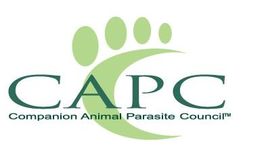Vaccinations and Requirements
Rabies (every 3 years)
DAPPv (Distemper, Adenovirus, Parvovirus, Parainfluenza) (every 3 years)
Bordetella (annually)
Canine Influenza Virus (annually)
Leptospirosis (annually)
Negative Heartworm test (annually) *see below for explanation
Negative Fecal Screen *see below for explanation
Negative Antigen & Flotation Giardia Tests (annually) Note: If either of these tests are positive, it takes at least 5-7 days to treat and then retest, so plan ahead!
Items to Bring
Food
Treats
Medications (Portioned and placed in pill boxes according to day of week is greatly appreciated)
Toys (Feel free to bring any toy which will occupy your dog and make the visit more enjoyable)
Clean Bedding ( We have bedding as well if you would rather use ours)
Clean Dog :O)
Boarding Requirements and Helpful Information
Parasite Prevention and Requirements
*If your dog is being treated monthly with a heartworm preventative that also protects against common gastrointestinal parasites, a negative Heartworm Test and a negative Fecal Screen is required yearly.
*If your dog is NOT being treated monthly with a heartworm preventative, a negative Heartworm Test is required yearly and a negative fecal screen must be run within 2 weeks of arrival every time the dog is boarded.
Within the US, including Oregon, it is recommended that every dog receive a monthly heartworm infection prevention medication.
"The Companion Animal Parasite Council (CAPC) is an independent council of veterinarians, veterinary parasitologists, and other animal health care professionals established to create guidelines for the optimal control of internal and external parasites that threaten the health of pets and people. It brings together broad expertise in parasitology, internal medicine, public health, veterinary law, private practice, and association leadership."

